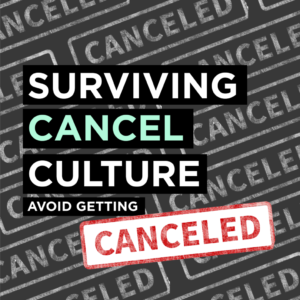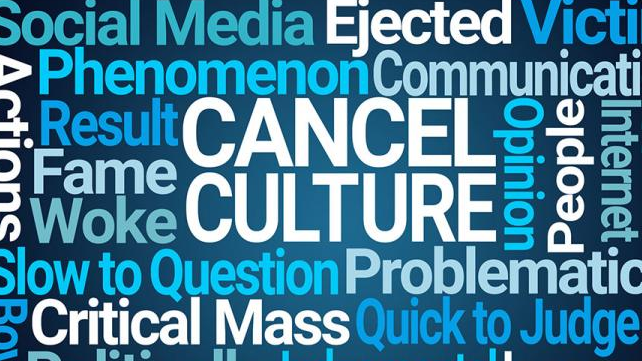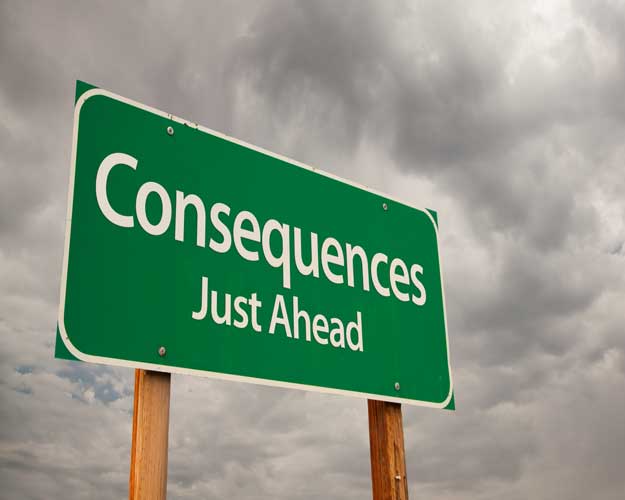
I have always been somewhat perplexed by those who get disgruntled over societal expectations that people be politically correct.
Really? You’re bent out of shape because society wants you to show respect and consideration for others, particularly marginalized or systematically oppressed groups? How dare they try to force you to be a decent human being!
The current conversation about “cancel culture” feels like a new iteration of the decades-old debate about having to be PC.
To cancel is essentially to boycott a celebrity, public figure, or brand based on acts deemed offensive or unacceptable. This also applies to private figures who have gone viral for statements or acts deemed offensive. Canceling is a call for people and brands to be held accountable for what they say, do, or don’t do. Canceling, within the context of boycotts initiated via social media, traces back to Black Twitter. The earliest discussions about canceling people included jokes and lighthearted commentary, but the intellectual segment of Black Twitter (academics, activists, artists, bloggers and writers being the most prominent among them), soon began to utilize this space to have serious conversations about taking a stand against racist, misogynistic, homophobic, or otherwise problematic behavior. Soon, these conversations extended beyond Black Twitter and into the mainstream, garnering support and solidarity from some and opposition and criticism from others.
Proponents of canceling tend to align with politically progressive ideology of which addressing systems of oppression is commonplace. University of Michigan professor, Lisa Nakamura, scholar of the intersection of digital media, race, gender, and sexuality, calls this a “cultural boycott”. “When a group of people lack the power to change or dismantle something, one of the few options available to them is to refuse to participate. In the economy of the internet, where attention often equals money, such a boycott has consequences,” is how this tactic was explained in The Telegraph.

So what about cancel culture are people opposed to? The consequences of getting #canceled can range from mild to severe. It is worth noting, here, that in some instances, actions deemed problematic are admonished or rebuked but don’t result in anyone being canceled; they get called out, hence the related term “call-out culture”. While calls to cancel are initiated online, the consequences of being canceled can impact one’s real life. Common criticism of cancel culture speaks to a feeling that these consequences can be too harsh in cases of minor offenses and that, all too often, the calls for canceling are made in haste or haphazardly. Thus, some see cancel culture as a dangerous mob mentality. In the era of #MeToo and #TimesUp, a great deal of conversation about canceling has centered around those accused or charged with sex crimes, a highly sensitive subject that won’t be examined, here. The only thing to note is that even in these instances, with high-profile celebrities, public opinion differs on whether or not the accused deserve to be canceled.
The very term “cancel culture” carries a negative connotation similar to that of political correctness. Presidents Trump and Obama have both spoken out against it. Trump, who also engages in it, having used Twitter to denounce journalists and the media, and to call for the boycott of other nations as well as U.S. brands like Apple, HBO, and Macy’s, has said that cancel culture “is the very definition of totalitarianism”. He also said, “The goal of cancel culture is to make decent Americans live in fear of being fired, expelled, shamed, humiliated and driven from society as we know it.” Though Obama didn’t use the actual term, at an October 2019 summit, he said, “This idea of purity and you’re never compromised and you’re always politically woke and all that stuff, you should get over that quickly.” In an open letter signed by over 150 prominent writers and thinkers, including JK Rowling, who was recently called out for commentary that was deemed transphobic, the ultimate consequences of cancel culture were said to be “a loss of open debate and tolerance”.

To me, much like arguments against political correctness seem to boil down to don’t tell me I can’t be a jerk to people whenever I want to, arguments against cancel culture seem to boil down to I don’t want there to be any consequences for my actions after I’ve been a jerk to people. Here’s the thing. There is freedom of speech and expression, and it goes both ways. If a public figure or brand communicates a message or displays conduct that reaches a public forum where it is deemed inflammatory or problematic, those offended have the freedom to use the public forum to express their disdain and choice not to spend their money on, or lend support to, the public figure’s projects or brand’s products. Considering that #canceled cases generally have to do with incidences of racism, sexism, xenophobia, homophobia or transphobia, why should any consumer who feels discriminated against be expected to spend money where they are not respected, accepted or supported? Further, why would we expect that those harmed to remain silent so as to protect those who’ve harmed them?
Journalist Jessica Valenti wrote, “At the end of the day, ‘cancel culture’ is a term full of sound and fury, signifying nothing…facing consequences for what you say and do is not a free speech violation.” Sarah Manavis of New Statesmen asked, “[W]ho has actually been cancelled? Millionaire authors continue to watch their books enjoy commercial success and filmmakers remain critically acclaimed (while also sitting on net worths of millions). They may have generated controversy and even lost fans. But have these controversies dramatically affected their earnings? Their power? Fundamentally, has their free speech been taken away? The right to free speech is not the right to have your unfiltered thoughts published without critique. It’s likely if you feel this way, you hold more power than most of the world. The powerful hold onto their power. The only real cost is having to listen to what others have to say.” While numerous celebrities have been inconvenienced by public backlash and subsequent setbacks, they generally keep their careers intact. Plus, there is redemption for those who seek it. Forgiveness can be earned.
Certainly, consequences can be a lot harder for private citizens whose transgressions are documented and shared to the extent of reaching viral status. There have been numerous individuals captured on video in racist rants or tirades. Writer and chair of the NABJ task force, Shanita Hubbard says “cancel culture” is the wrong phrase to use for these instances She takes Amy Cooper for example, “I think it’s unfair for anybody to say what happened to Amy was cancel culture. What happened to Amy was public accountability, because her actions were harmful.” Naturally, such behavior doesn’t go over well with employers, especially when the public has its eyes on them. Companies need consumer dollars, and they know, now more than ever before, consumers care about where a company stands on social issues. Krishauna Hines-Gaither, associate vice president for diversity, equity, and inclusion at Guilford College and cofounder of African American Linguists noted that these consequences are generally a direct response to problematic or questionable actions that has previously gone unchecked. Hubbard sees the term “‘cancel culture’ being used as a shield” for people to “evade responsibility and decry public accountability”.
Writer Sarah Hagi, a Black, Muslim woman who writes of her experiences with Islamophobia said in Time, “I have received more death threats, calls for my firing and racist insults than I can keep track of. But when people who believe cancel culture is a problem speak out about its supposed silencing effect, I know they’re not talking about those attacks. When they throw around terms like ‘cancel culture’ to silence me instead of reckoning with the reasons I might find certain actions or jokes dehumanizing, I’m led to one conclusion: they’d prefer I was powerless against my own oppression.”
Sources:
Ten years of Black Twitter: a merciless watchdog for problematic behavior
How ‘cancel culture’ quickly became one of the buzziest and most controversial ideas on the internet
Cancel culture: what is it, and how did it begin?
“Cancel culture” does not exist
Cancel Culture Is Not Real—At Least Not in the Way People Think
Political Correctness: Its Origins and the Backlash Against It
‘Politically Correct’: The Phrase Has Gone From Wisdom To Weapon

4 Responses to Accountability is a Thing. Consequences are a Thing. Let’s Stop Making “Cancel Culture” a Thing.